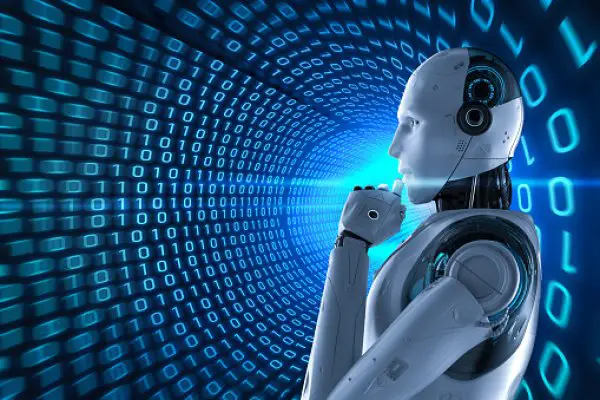The concept of machine learning has been around since the 1950s and has recently resurged in popularity due to advances in artificial intelligence and neural networks. AI is widely adopted across industries, from driverless cars to autonomous robots.
With generative AI algorithms such as GPT-3 in our arsenal, it is becoming increasingly clear that we are inching closer to a future where AI could surpass human cognition. But what will happen after this so-called “AI singularity” occurs? What implications would this have on society at large?
Generative AI, powered by Large Language Models (LLMs) and transformer neural networks, has been the cause of much excitement. Unlike the hype that other new technologies such as the metaverse, crypto, and Web3 have created, Stable Diffusion and ChatGPT are foreseen to make an immense, perhaps even revolutionary, impact.
The tools that are currently available have the potential to revolutionize multiple industries, such as the film industry, and could be a major player in enterprise software.
In his Stratechery newsletter, Ben Thompson has concluded that the advent of generative AI is ushering in a fresh era of technology.
Thompson and Woodbury agree that Artificial Intelligence is still in the early stages of development. On a podcast, Thompson compared it to “the first inning,” Woodbury said in his Digital Native newsletter that progress is being made with AI applications every year.
As the New York Times reported, competition is underway, with many corporations entering what has been termed an “AI arms race” shortly. This trend will likely continue, with more businesses joining the fray over the next few weeks and months.
How A Foreshock To AI Singularity Could Change Our World
As the dawn of the generative AI age is upon us, what could be expected in the future, and when will this happen? It would be reassuring to believe that we have enough time to adapt to these upcoming modifications brought by generative AI.
This new period could be a warning sign for an even more significant occurrence, the AI singularity, in much the same way a foreshock can forecast an earthquake.
The first concept associated with AI singularity is that it marks a point when artificial intelligence leverages its capabilities to outstrip human intelligence, resulting in an exponential increase in technological developments.
The second proposition implies that the technology will enhance itself at an increasing speed, eventually arriving at a stage where the development of technology is so rapid that it outstrips humans’ capacity to comprehend or anticipate it.
The first idea appears thrilling and full of potential – from creating remedies for intractable sicknesses to finding nuclear fusion, which would provide low cost and limitless energy -. In contrast, the latter brings up frightening images of Skynet.
Sam Altman, the CEO of OpenAI and a major supporter of generative AI technology, who also created ChatGPT and DALL-E 2, has recently voiced his worries about a potential doomsday situation for Artificial Intelligence.
Sam Altman says:
“Is, like, lights out for all of us.”
“Impossible to overstate the importance of AI safety and alignment work.”
When Will The Singularity Arrive? | Exploring The Future Of Technology
Predictions about when singularity will be achieved are very diverse, with some people believing it could happen any time soon and others claiming it may not even come to pass in the next hundred years. The most optimistic outlook is that it will arrive quickly.
Ray Kurzweil, a well-known futurist and current director of engineering at Google, is widely cited for his prediction that the singularity will occur in 2045, as stated in his 2005 book The Singularity is Near. Similarly, François Chollet, an expert on deep learning, observes that forecasts of the singularity are always approximately 30 to 35 years away.
Vinge’s prediction is likely to come true. In a 1993 article, he used the term “singularity” and made a dramatic claim: that we are on the brink of an event as important as when life first appeared on Earth.
The Italian language translation firm, Translated recently proposed that the singularity is reached at the point where Artificial Intelligence (AI) offers a perfect interpretation. Marco Trombetti, the CEO of this company, made this statement.
“Language is the most natural thing for humans.”
“Remains one of the most complex and difficult problems for a machine to perform at the level of a human.”
Therefore, it can be used as a reliable indicator of the coming of singularity.
The company has been utilizing Matecat, an open-source computer-assisted translation (CAT) technology, to evaluate this since 2011. It has also been keeping track of its progress with Time to Edit (TTE), a metric in the tool that measures how long it takes for professional human editors to correct AI-generated translations relative to human translations.
As technology develops, it is important to keep an eye on new advancements, risks, and benefits. “generative AI” refers to artificial intelligence that can create new data. While this may sound like a positive development, there is also the potential for generative AI to be used for nefarious purposes.
For example, if someone could create fake news stories or social media posts using generative AI, it could have far-reaching negative consequences. Therefore, we must monitor the development of generative AI and ensure that it is used responsibly.
Source: venturebeat



